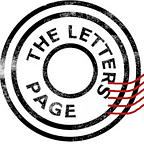Mslexia: For Women Who Write
By Chloé Rose Whitmore
Edited by Lizzie Alblas
This post is written by a member of The Letters Page team, who would like to recommend to fans of our work another journal which you may enjoy reading.
It was ten years ago when I first picked up a copy of Mslexia. At the volatile age of 17, I was just starting to stretch into the world of writing — scrawling angst poems on coffee cups, napkins, the sole of my shoe. I didn’t know how to turn my dreams of being a writer-turned-millionaire into anything real or concrete, and well-meaning teachers had no idea which direction to point me in.
And then, Mslexia.
Dubbed the magazine for ‘women who write’, Mslexia is a literary journal, advice mag and submissions directory, all rolled into one glorious spread. Although they’re a UK-based mag, they accept submissions from women all over the world, whether they’re household names or just starting out. I’d never seen anything like it.
A decade later, women’s writing spaces are a lot more common than perhaps they were back then. Now there are hundreds of incredible journals devoted to championing the work of marginalised groups, whether that’s women, people of colour, or those identifying as LGBTQ+.
But Mslexia still feels a little bit special. It’s more than just a magazine — it’s a whole community of women writers, spread across the UK and beyond. From online salons to writing weekends, Mslexia creates spaces for women to meet, chat, read each other’s work, and even get advice from editors and literary agents.
And then there’s the submission opportunities. There’s an absolute boatload of them. As well as sharing opportunities from the wider writing industry, Mslexia has a whole range of submission categories you can submit to — without any of the admin charges you get with some magazines. From full-blown features to bedtime stories, there are 17 ways to submit your writing — with word counts ranging from a couple of sentences to 3000 words. Dropping any kind of literary elitism, this plethora of opportunities means that even the most time-poor of us have the chance to see our names in print.
If I’m starting to sound like a sponsored ad, it’s because Mslexia has become a core part of my own writing career. In 2019, they published a short piece of mine — my first-ever piece of creative work in print. As women, I think it’s easy to believe our voices don’t matter — that, even if we did have something interesting to say, no one would want to listen. But seeing my words in print — even if it was only a few hundred of them — gave me the confidence to keep going, to take more chances. It’s the reason I’m sitting here, on The Letters Page team, ready to give other writers that same chance Mslexia gave me.
___________________________________________________________________
The Letters Page team are back in the office, and ready to read your real letters again. We publish stories, essays, poems, memoir, reportage, criticism, recipes, travelogue, and any hybrid forms, so long as they come to us in the form of a letter. We are looking for writers of all nationalities and ages, both established and emerging.
Your letter must be sent in the post, to :
The Letters Page, School of English, University of Nottingham, NG7 2RD, UK.
See our submissions page for more information.
To stay up to date on The Letters Page newsletter publication, subscribe here.
